“I remember the Russian military as looters...” Interview with the head of the Lyptsi municipality
Oleksii Slabchenko, head of the Lyptsi municipality in the Kharkiv region, told us about the occupation, collaborators and restoration prospects for the destroyed villages
Text by: Dmytro Syniak
The border with Russia is only 10 km from the village of Lyptsi, the administrative centre of the Lyptsi municipality in the Kharkiv region. The village is located on the road to Kharkiv, which is twice as far away, so it was occupied on the very first day of the Russian invasion. Hordes of invaders rushed through it westward. The occupying power held to Lyptsi until mid-September when it was driven out by the Ukrainian army. For four months, the head of the Lyptsi municipality, Oleksii Slabchenko, stayed under occupation, trying his best to help people, despite de facto losing his powers almost immediately. A local collaborator Kudikov, with the tacit consent of the Russian army, simply declared himself the head of the village council, demanding that “everyone must obey him now”. At the beginning of September, this collaborator left with the Russian troops, and Oleksii Slabchenko returned to his office in the village council in a few weeks. Before that, he had been forced to “evacuate to Russia” at the occupiers’ order. In fact, he went through the Russian territory to Latvia, and from there to Kharkiv. Mr Slabchenko told Decentralization about his current work.
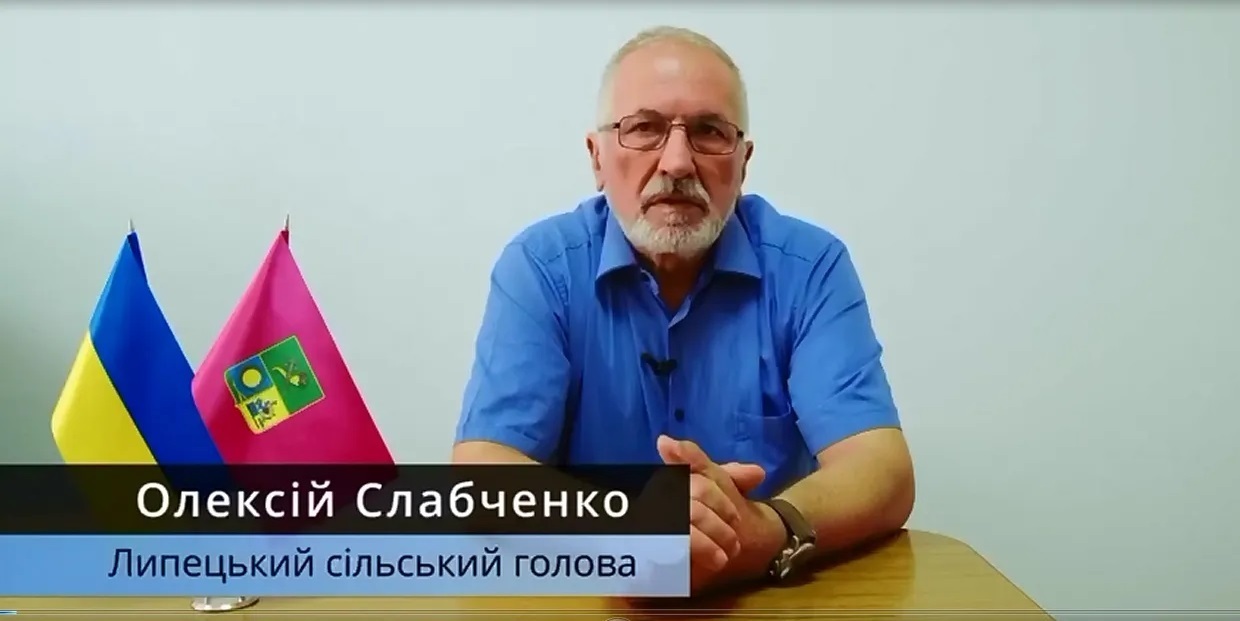 Oleksii Slabchenko, head of the Lyptsi municipality
Oleksii Slabchenko, head of the Lyptsi municipality
How many residents are left in the Lyptsi municipality?
Before Russia invaded here, our municipality had a population of 13,446, and now it is 1960. Some villages such as Zelena, Male Vesele, Ternova were fully depopulated... For example, Male Vesele was completely destroyed; Peremoha has 2 persons left and suffered significant destruction and large fires. Few houses survived in Ternova; Borshchova, Slobozhanske and Vesele were badly damaged. At the same time, Strilycha, Borysivka, Pylna, Lukiantsi were left unharmed. However, now they are shelled from the Russian border with tanks and artillery. And as soon as a new round of shelling starts, there is another wave of people wishing to leave. Because of this, Strilycha, a village on the very border with Russia with a pre-war population of 450, now has only 17 residents. There was also a psychiatric ward with 650 male and female patients in Strilecha. They have been evacuated due to constant shelling, which even killed four doctors. This hospital was the largest enterprise in the village, and most of the residents worked there. Now they have nowhere to work.
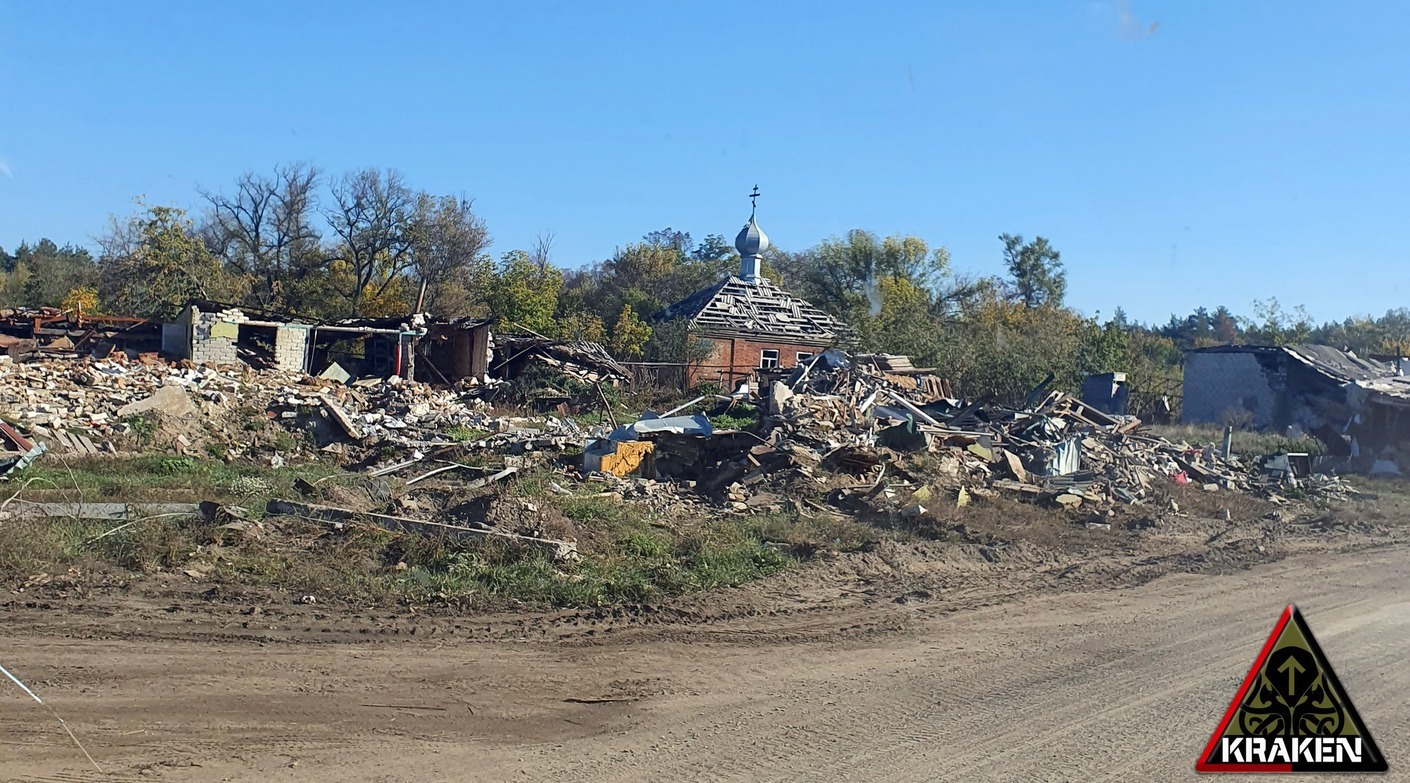
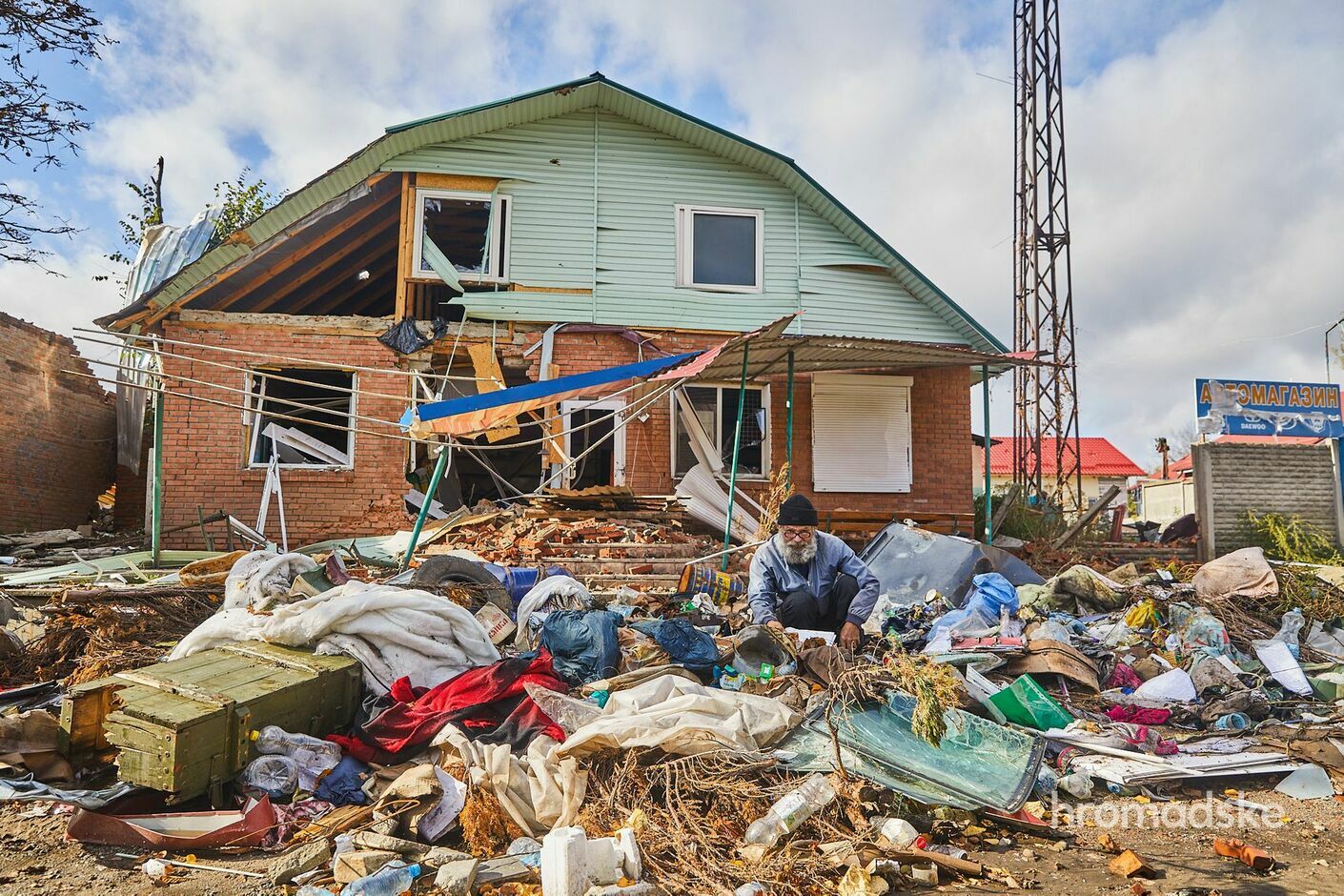
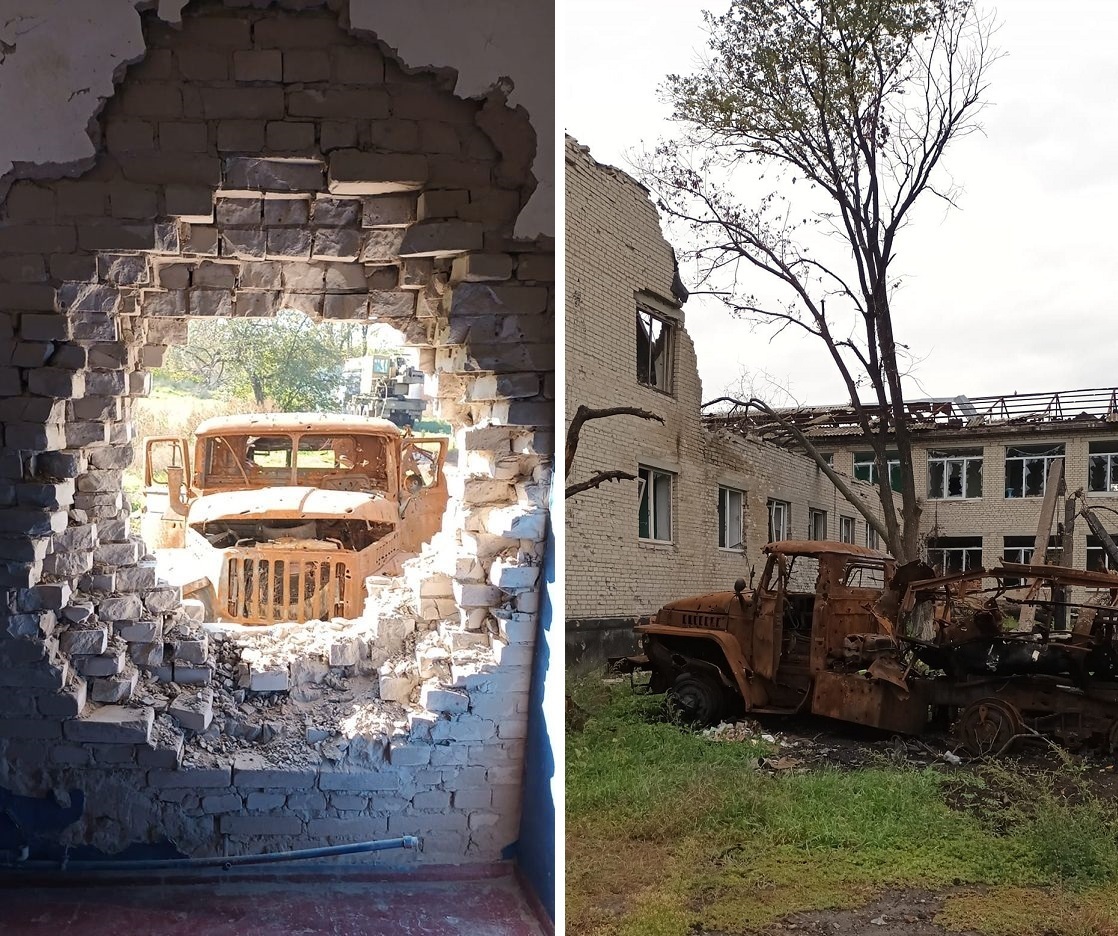
Russian troops brought only destruction and death with them...
What is the situation with work in other villages?
Basically the same. Almost every village had some agribusinesses or farms, but now most of them are closed down. Many residents of our municipality used to commute to work in Kharkiv, but now many companies have closed down or relocated. People lost their jobs, and the municipality lost budget revenues. The same psychiatric ward in Strilecha gave us significant revenues from personal income tax, and now we have lost this source.
What about the municipality budget?
For 9 months of this year, we met the budget targets by only 40%, but our revenues are decreasing every month. After all, the Lyptsi Village Council received most of its revenues from land rent, and the land is hardly being used now. Due to hostilities, the agricultural company Svitanok failed to collect winter crops from more than 2,000 hectares. Now these fields are mined as well; there are many IEDs there. We have fertile, promising land, mostly chornozem black soil. Over time, it can be cleared of mines and returned to the service of people. If only the shelling would stop... But all the local experts agree that it will take us about two years to return to pre-war figures.
Did Russians loot much municipal equipment?
They took everything! We have not a single municipal vehicle, tractor or school bus left! And we had eight buses that children rode to schools. Businesses, especially agricultural producers, also suffered equipment losses: many harvesters and tractors burned down during the hostilities. Take, say, the same agricultural company Svitanok. It had 6 harvesters. Well, three of them burned down. The agricultural company Prestige had 5 harvesters; now there are none. Some were looted, some burned down, some are now cannibalised for parts... Farmers are trying to move what’s left away from the Russian border. They are now actively repairing the remaining equipment — and also taking it away.
How often is the municipality being shelled now?
Nearly every day. Front-line villages, such as Strilecha, are shelled regularly. And on the 15th of March, a 5-year-old boy died in Lyptsi as a result of Russian shelling. In total, several dozen people have already died from the shelling, including seven in my native village of Vesele. A few are missing, probably struck by IEDs. Our life is dangerous now.
What do the people who stayed in the municipality think? What is the sentiment among them?
Active pro-Russian residents of the municipality fled with the Russian army, which they served and swore allegiance to. Others are now testifying. Just a few days ago, the Kharkiv Regional Prosecutor’s Office served a notice of suspicion to a 31-year-old resident of Lyptsi, who provided the invaders with food and alcohol, cooked for them and washed their clothes — in exchange for loyalty. Kudikov was also declared a suspect. The occupation, which lasted from 24 February to 11 September 2022, revealed people’s true colours. While some reported data on the movement of Russians to the Armed Forces of Ukraine, others betrayed the families of border guards and ATO soldiers to the occupiers, served them and helped them put up propaganda billboards claiming that Russians and Ukrainians were “one nation”...
You said that Russians took you to be shot several times and kept you imprisoned in the basement for three days. What were they trying to achieve?
They wanted to make me cooperate. However, I could not agree with their demands. And they really needed their own man in Lyptsi. Later, they captured another man who, after several rounds of interrogation, agreed to cooperate. That’s why I was released — under 10-day house arrest. They understood that I was respected in the community and did not wish to turn the local population against them unnecessarily.
What repressions did Russians inflict on the people of your municipality?
They did not go easy on those suspected of having connections with the Ukrainian army. The occupiers imprisoned Maria Shevchenko, a 71-year-old woman of Lyptsi, for just one comment. They set up a torture chamber in a driving school.
How do you remember the Russian military?
As looters. It was revolting to see this army, which came, shelled a village, forced people to flee and then blamed Ukraine, saying that the Ukrainian forces were the ones shelling us. Although everyone saw it all and knew everything. They lied to our faces. The looting went on and on. Moreover, it was not the attack units that did the looting but various rag-tag groups who came after them, such as Buryats, Bashkirs, Chechens, men from the so-called “DPR” and “LPR”... The Lyptsi Police Department, for example, was completely emptied: the Russians stole not only every computer but every single chair! They took even the sockets from the walls. In schools, they destroyed the equipment they could not take away: laptops were taken while large computers were smashed. The lack of office equipment is one of the reasons why part of the village council team is forced to work in Kharkiv: there are no proper conditions for work in Lyptsi. Wherever Russian soldiers lived, huge piles of garbage grew. These bastards shat where they lived, and it didn’t bother them at all.
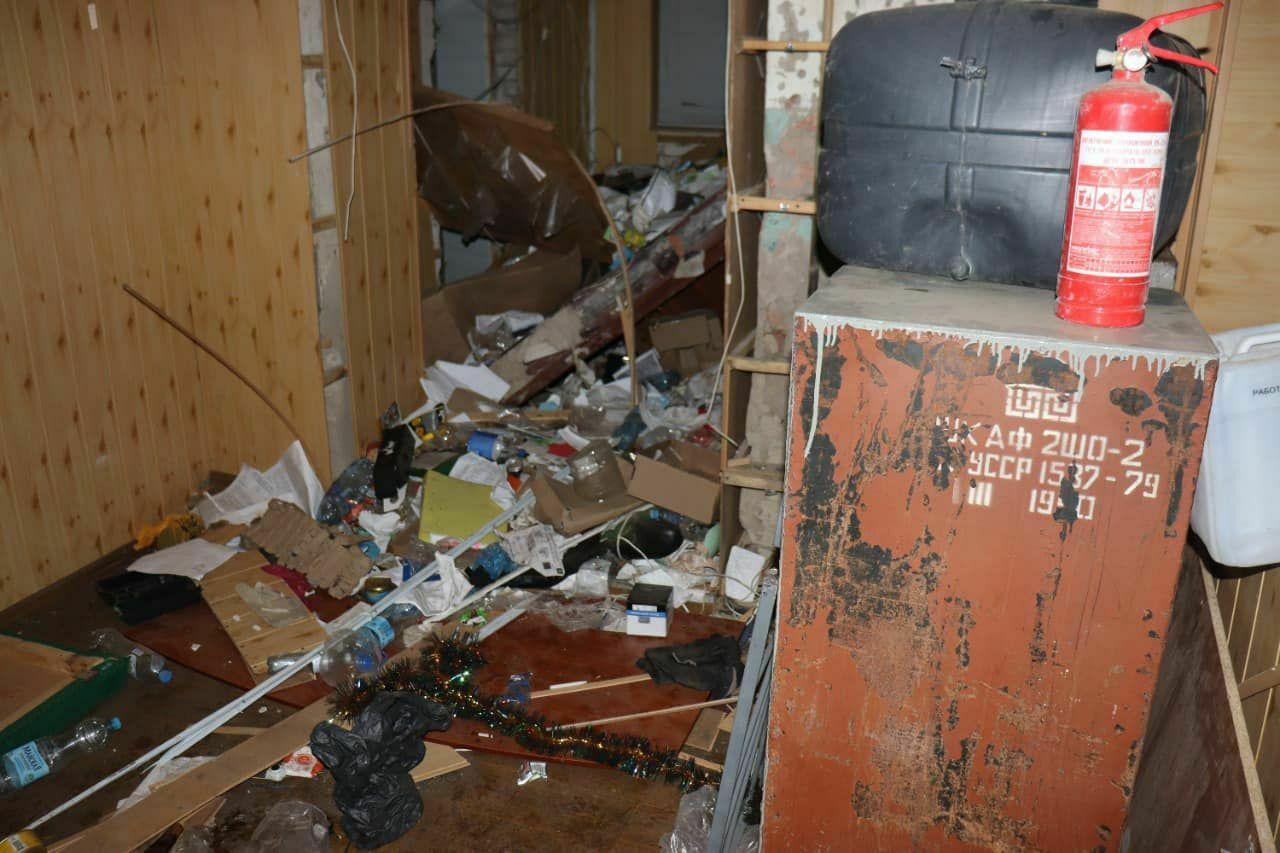
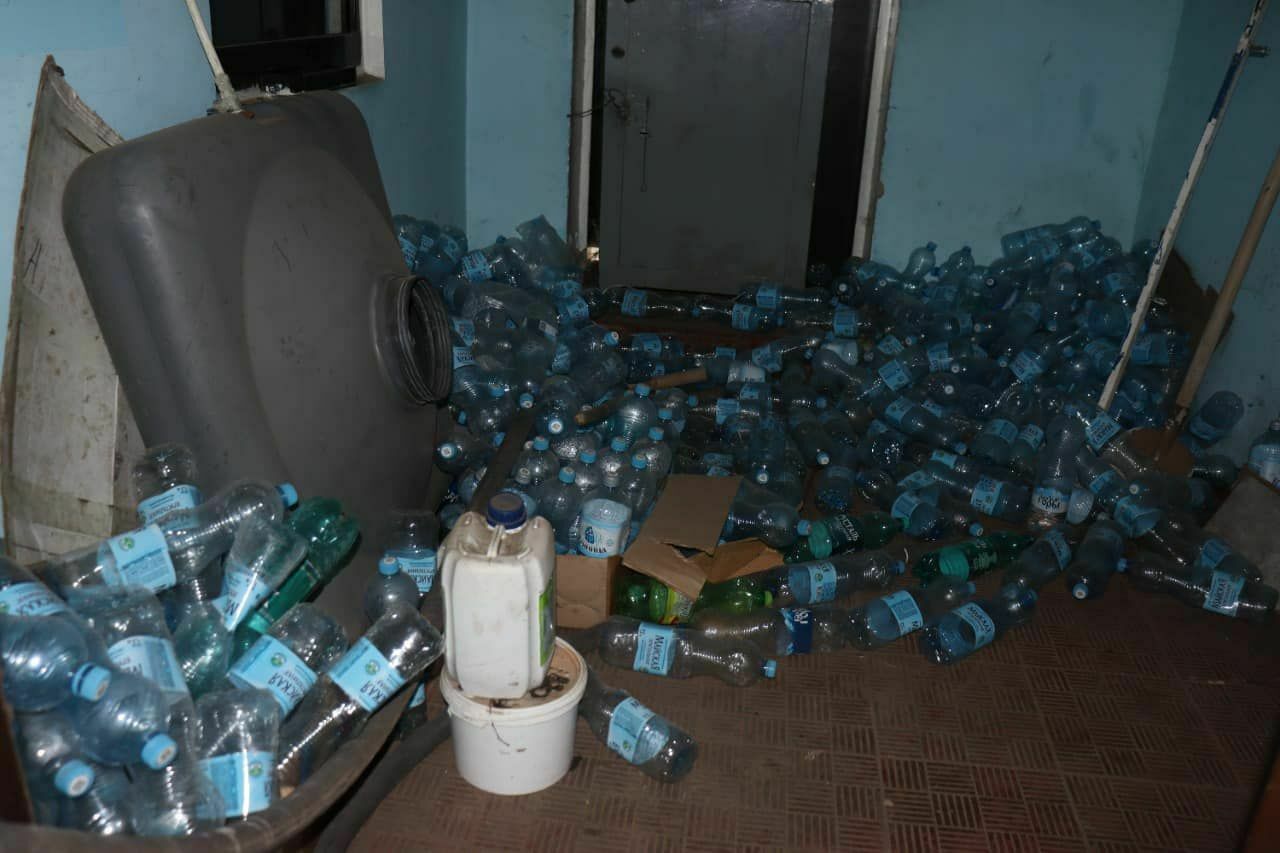
...they took everything of value with them...
Civilians have usually complained the most about the actions of terrorists from the so-called “DPR” and “LPR”. How it was in Lyptsi?
Our experience with them varied. I lived under the occupation in Vesele rather than Lyptsi. The “LPR” soldiers were the first to come there. They behaved brazenly and defiantly. They stayed with us for a week or ten days and then went on the offensive to Kharkiv to, apparently, find their death. They were replaced by the “DPR” soldiers. But those were people that had been hastily grabbed from the streets or, as they called it, mobilised. These people did not want to fight but were forced into it, so there were different attitudes among them.
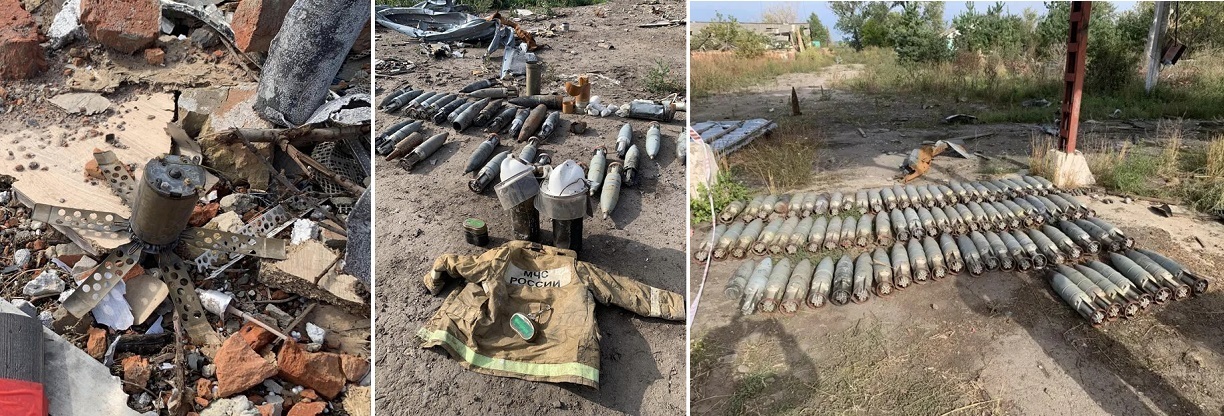 ... and they left many IEDs and unexploded ammunition...
... and they left many IEDs and unexploded ammunition...
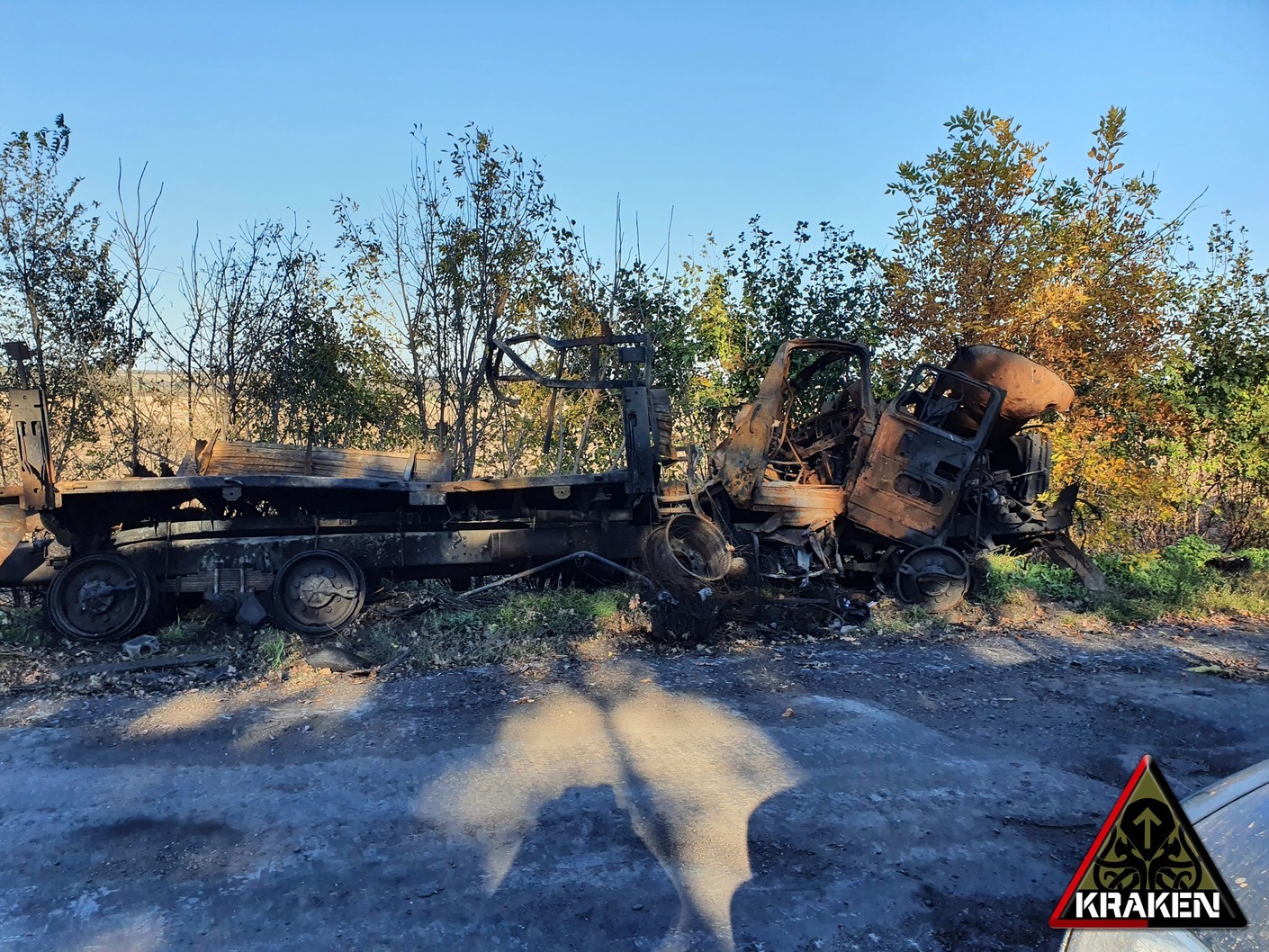 as well as their vehicles destroyed by the Ukrainian army.
as well as their vehicles destroyed by the Ukrainian army.
There are photos circulating on the Internet showing that the Russians changed the signs with the names of villages in the Lyptsi municipality, using Russian instead of Ukrainian. Was it really so important for the occupiers to rename Lyptsi to Liptsy?
I will tell you more: everywhere they could, they wrote, ‘Liptsy, Belgorod region’. But they were interested in the main village of the municipality and did not bother to change the signs in others.
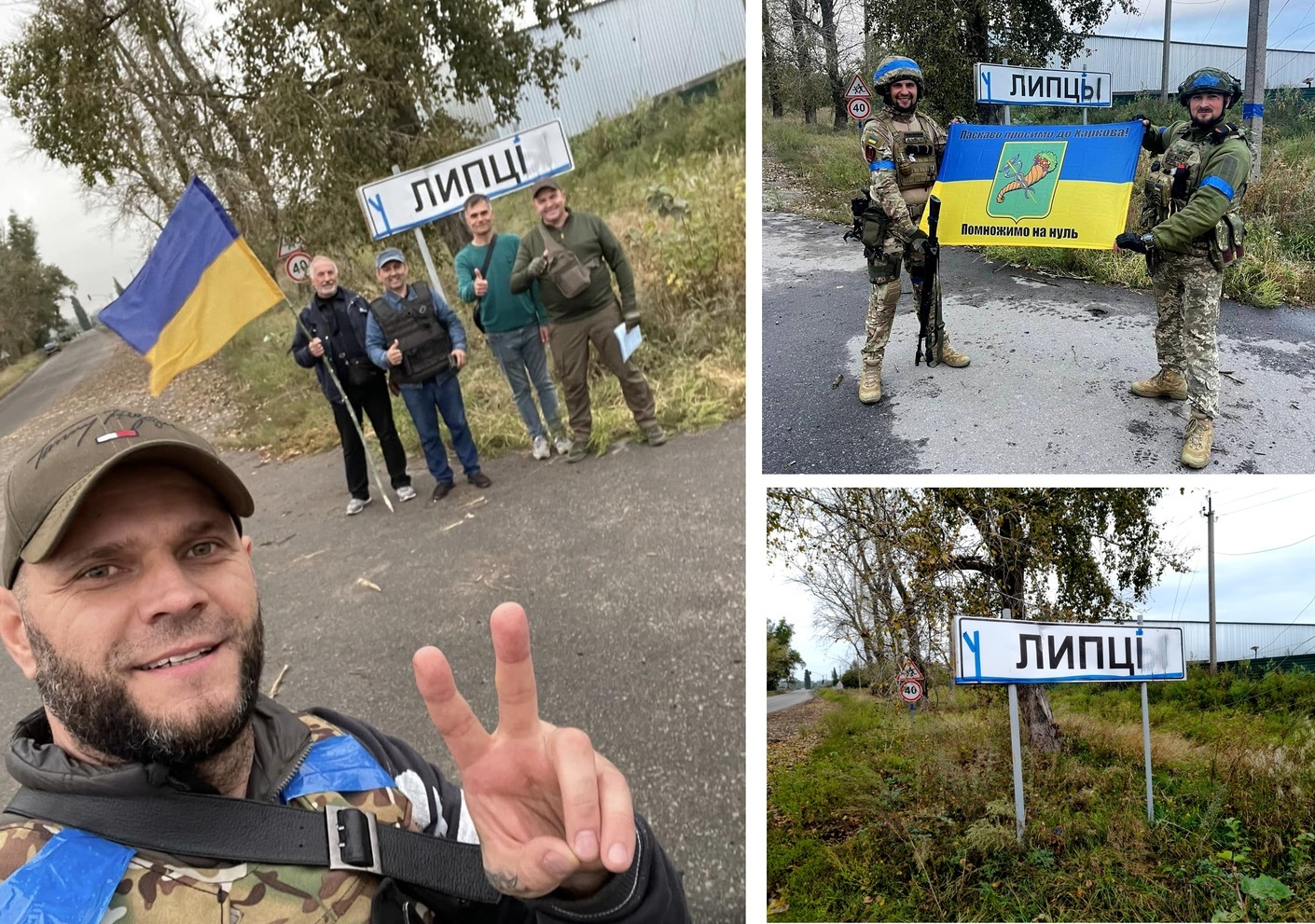 Linguistic battle for Lyptsi. Ukrainian soldiers on the outskirts of the village on 11 September 2022
Linguistic battle for Lyptsi. Ukrainian soldiers on the outskirts of the village on 11 September 2022
The language issue did not end here. Svitlana Dubinina, Headmistress of the Lyptsi Lyceum, proposed to remove any references to Russia, its history and culture from the names of all the streets in the municipality. How do you feel about this initiative?
I’m all for it! Although I haven’t quite figured out how to properly organise the renaming. In peacetime, we would have held public hearings to approve the list of streets to be renamed as well as their new names. I have no idea how to tackle it now. After all, most of our residents have moved away. What if they don’t like some new names when they come back? Therefore, I am in favour of addressing this in communication with people rather than top-down. Maybe when the electricity is back on, we will hold an online vote.
 Residents of Lipetsk municipality greet Ukrainian soldiers
Residents of Lipetsk municipality greet Ukrainian soldiers
How often do you get blackouts?
We don’t get blackouts... because we don’t have electricity. It disappeared on 24 February 2022 and is yet to be back. There still had been gas until May. We are just beginning to restart the gas supply to our villages. Slobozhanske, Lyptsi and Hlyboke were recently connected to the gas network. In other villages, we connect new districts almost every day. But there is no electricity. This is the case now in almost the entire Kharkiv region. People live as in the olden days, by fire pits; they cook on firewood and carry water from wells. Those who are a little more wealthy turn on diesel generators to charge their phones. Returning electricity to the villages is the primary task of our village council.
What other tasks are facing you as the head of the municipality?
Now we are restoring the premises looted by the Russians and trying to restart the heating systems. We also want to return medical services to the municipality. Fortunately, the roof and walls of our hospital survived, so after repairs, it can be at least partially functional. The district administration promised to allocate a car for the hospital. The main thing is that there is no new shelling. The municipality also recently reopened the pharmacy to provide residents with medication. We have also received the Starlink system and are now working on the generator that we will run during business hours. This way, children will have the Internet for online learning.
Is the municipality provided with humanitarian aid?
Yes, fully. Now this is the only source of people’s livelihood, because the shops in the municipality are all closed, and the entrepreneurs are not ready to open them. That is, there is nowhere to buy food, and people only survive off humanitarian aid. But at least we get it. There is, however, a huge problem with building materials! Because of this, some damaged houses may not survive the winter. Another problem is constant shelling. People are afraid to come even for warm things, so repairs are obviously out of the question. How can you repair under shelling? People want to go home, but it’s probably too early for that. There is neither adequate medical care nor other conditions. Our municipality, although relatively small in terms of population, is very large geographically: it includes as many as 17 settlements. Our villages are often 5-10 km apart, and there is no transport at all. Still, we have to somehow take care of the people there. Fortunately, our partner, the Vysokyi municipality lent us a van. This is the only thing that saves us. Sometimes volunteers and local residents also provide transport.
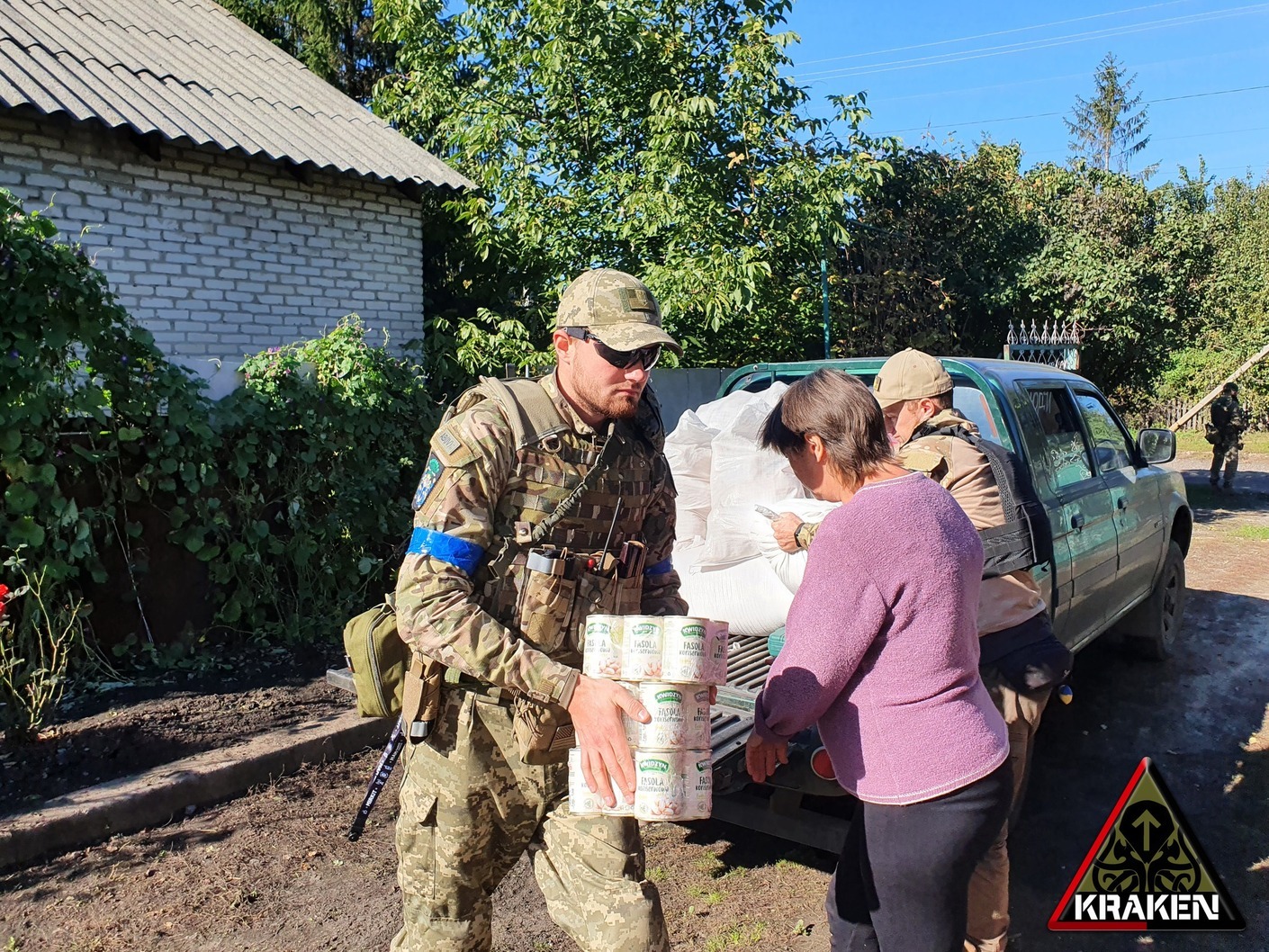 Soldiers of the Kraken unit of the Armed Forces of Ukraine distribute humanitarian aid among the people in the Lyptsi municipality
Soldiers of the Kraken unit of the Armed Forces of Ukraine distribute humanitarian aid among the people in the Lyptsi municipality
What will the restoration of destroyed villages depend on?
State policies and people’s desire to return. At the moment, the village council does not encourage people to return; it is dangerous now. As I already said, there is no electricity, and gas is available only in a few villages. How can you live here? People are welcome to return in the spring. Then we will rebuild our villages together. I hope there will be some state compensation for this. We have also submitted an application to the Kharkiv Regional Administration for temporary housing that could house those whose homes were destroyed. Several of our villages have general layouts that allow for setting up such temporary towns. We will also talk with residents of small destroyed villages about the possibility of resettlement to other places that were spared extensive damage. Everyone will benefit from making our municipality more compact, as it will be easier to provide services, and this will certainly improve their quality. But in order to fully return to our lives, what we need most is peace. We need victory.
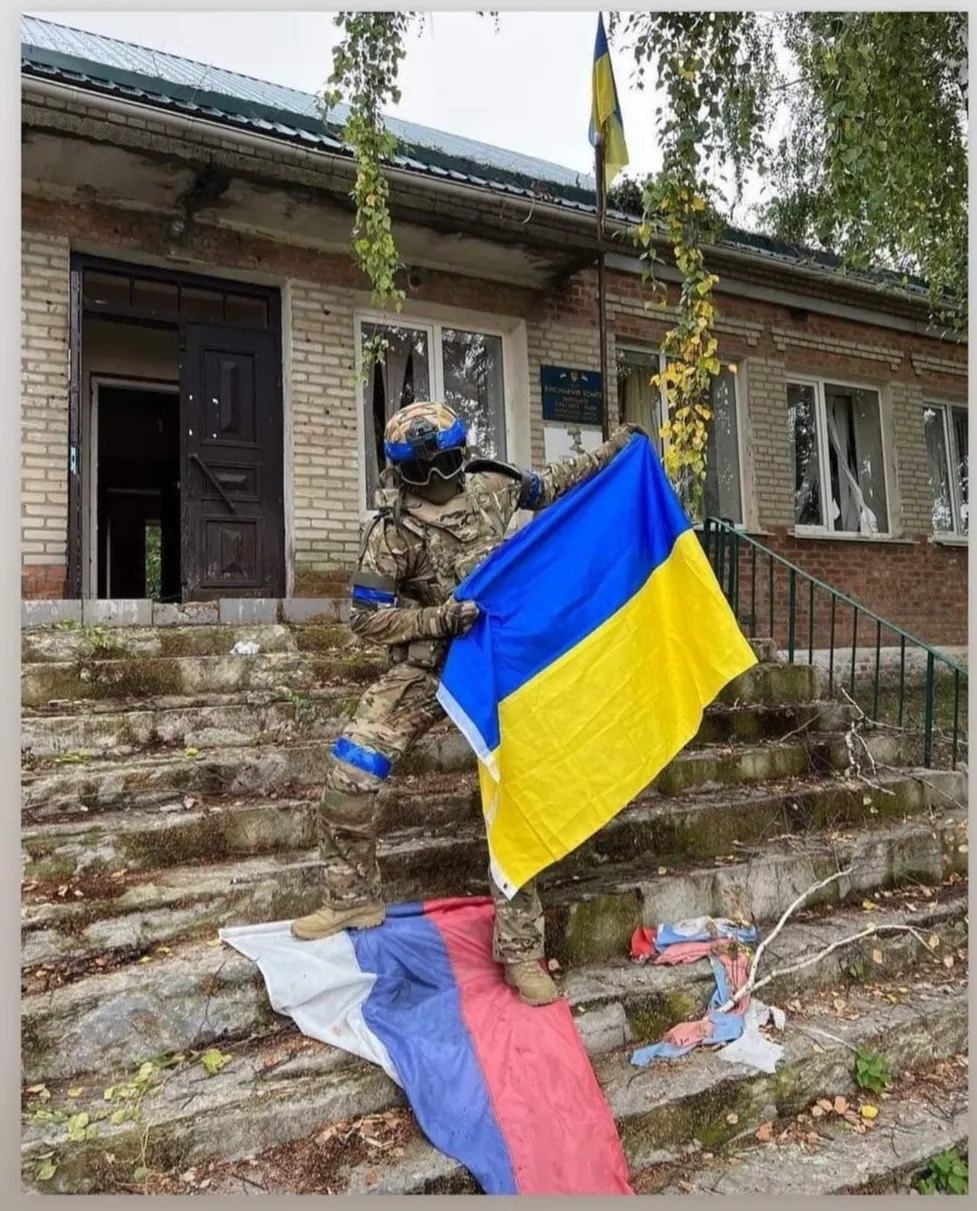
Raising the Ukrainian flag in Lyptsi on 11 September 2022
Tags:
war stories report war stories special project
Область:
Харківська областьГромади:
Липецька територіальна громадаSource:
Пресцентр ініціативи "Децентралізація"
20 February 2026
Місцева статистика: Як перетворити розрізнені...
У Києві відбулася стратегічна зустріч "Статистика громад", організована Державною службою статистики України за...
20 February 2026
I_CAN launched a nationwide rollout of its Public Investment Management Training Programme for local governments and...
20 February 2026
Language of Development Part 2: Funds and Instruments of EU Cohesion Policy
Language of Development Part 2: Funds and...
With the “language of development”, we describe not only the goals and principles of EU regional policy, but also...
19 February 2026
Анонс: вебінар «Обговорення змін до Порядку...
Які практичні кроки мають здійснити керівники та педагоги, щоб ефективно впровадити ключові зміни до Порядку...